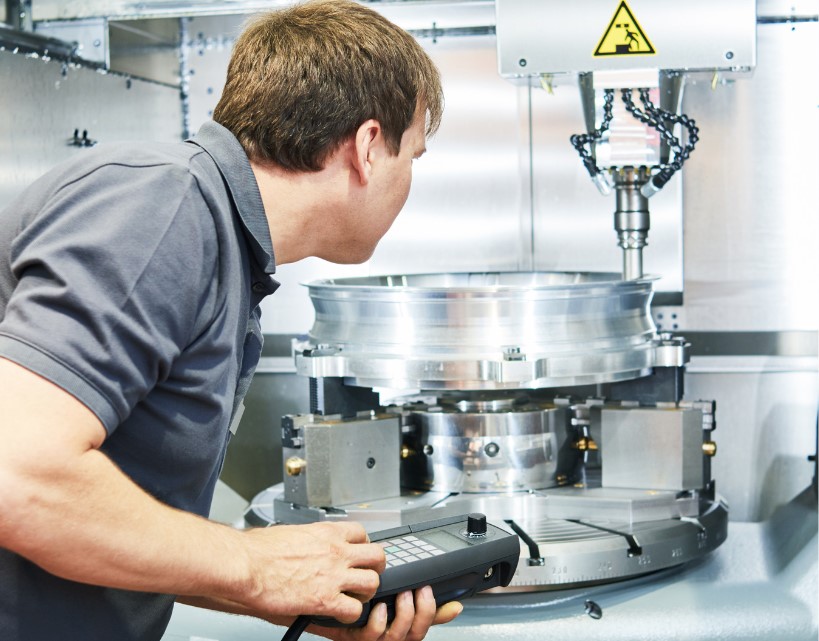Computer Numerical Control (CNC) A type of machine machining, has revolutionized manufacturing and engineering over the past few years. CNC Machining, which integrates digital technology with traditional manufacturing processes, is now a dominant way to manufacture high-precision products and components to suit a broad range of industries. This article explores the advantages and applications of CNC-machining. It also highlights its impact on modern technology.
The Mechanics of CNC Machining
CNC machining is a subtractive process of manufacturing in which the material is removed from a solid block or workpiece to give it the shape you want. The process is guided by computer software that is pre-programmed to control the movements of the machine. The code used for CNC machines may differ based on the type of machine used and the degree of complexity of the product that is being made. But the basic principle remains the the same: a high-speed cutter is meticulously shaves material to create the final product.

CNC machining has many advantages. One of these is the precision. The digitalization of the process allows for an extremely accurate and consistent production, while minimizing human error and ensuring uniformity across batches. This level of precision is vital for industries where even smallest deviations can have significant effects, including aerospace, medical devices manufacturing, and automotive.
The Role of Digitalised Computers in CNC Machine Operations
The integration of digital technology lies at the core of CNC manufacturing’s accuracy and efficiency. CNC machines are controlled with special software that automates each step of the manufacturing process. This software converts computer-aided design (CAD) models into a series of precise instructions, which the CNC machine then follows to create the part. The instructions are able to dictate every aspect of the process, from the direction and speed of the cutting tool to the length and angle of every cut.
In industrial plants with large capacity computers are usually integrated directly into CNC machines. This permits seamless communication and controls. This integration allows real-time monitoring that ensures the highest performance and reduces the time between maintenance. Automation of CNC machines also allows for continuous operation, greatly increasing productivity while reducing the time it takes to complete.
The Benefits of CNC Machining
CNC machining has many advantages over other manufacturing techniques. The ability to create intricate and complex components with a high degree of precision is among the biggest benefits. CNC machines’ accuracy can eliminate the need for manual adjustments or perform Rework. This reduces waste and improves efficiency. CNC machines also have the ability to run in a continuous manner. This makes them perfect for production runs of large scale.
Another benefit is the flexibility of CNC machining. The CNC machine can be used to produce a wide variety of components by simply changing the software. CNC machine is able to be modified which makes it ideal for prototyping as well being a mass production. This allows manufacturers to rapidly respond to market demands changes.
Automation of CNC machineries improves safety in the workplace. Accidents and injuries are reduced when manual intervention is not necessary. CNC-machined products are also more reliable and perform better, thereby increasing satisfaction of customers.
Industries Benefiting from CNC Machining Services
CNC machineries are utilized across a range of industries, all benefiting of its efficiency, precision and adaptability. CNC machines used in aerospace manufacture components that must meet high safety and performance standards. The medical device industry relies on CNC manufacturing for the manufacture of sophisticated surgical instruments and implants, where accuracy is crucial.
CNC machineries can be utilized to produce engine parts such as transmissions, intricate interior and exterior components, as well as even more complex exterior and interior designs in the automobile industry. The same goes for electronics industry benefits from the ability of CNC to make small, precise parts that are used in consumer electronics, communication devices, and various other electronic items. In addition, the art and jewelry industries make use of CNC technology for intricate designs and customized pieces.
The future of CNC Machining
CNC manufacturing is expected to continue to expand as technology continues to improve. CNC’s capabilities will further be enhanced by technological advancements like multi-axis machines additive manufacturing, advanced materials. Additionally, the ongoing development of artificial Intelligence and machine learning could boost the effectiveness and accuracy of CNC manufacturing processes.
CNC machining that is unmatched in effectiveness, precision and efficiency is having a huge impact on modern engineering and manufacturing. The capability to create intricate and precise parts makes CNC machining a valuable instrument in a wide range of industries. CNC manufacturing, as the technology continues to evolve will remain an integral component in manufacturing’s future.